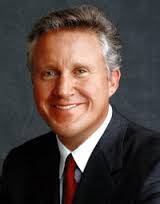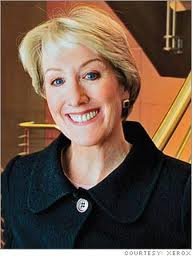The 2012 Olympic Games begin today in London and there will be much talk over the coming weeks of the dedication and talent of the winners. Though none of us as yet know the names of the gold medalists of each event, one thing is certain, a lot of extremely gifted and hardworking individuals will return to their countries with nothing more to show than their participation in the games. Does this make them losers? Of course not.
Human nature means that we have a limited capacity for remembering the mass of information that bombards us today. Sadly, this means that those who do not get to the highest podium are quickly forgotten. Who was the first man on the moon? Neil Armstrong…easy! And the second?!
By the same logic even silver and bronze medal winners find very quickly that few people remember them. So what about those that come 7th or 8th? Perhaps it is good to remind ourselves that the man or woman that comes last in the final of the 100m race is a huge success though few people apart from friends and family will recognize this.
Most people in higher education know exactly what this feels like. We don’t have gold and silver medals but we do love rankings which are the academic equivalent. These are generally good for most stakeholders in higher education and students in particular since they give a basis for comparison. The adverse side effect is that they constantly give you proof that there is someone better than you. By definition, most of us do not study or work for the number one university in our country. Even for those people that do, there is then a tendency to look abroad and have to come to terms with the fact that there is better elsewhere.
Put simply then, unless you are the top professor in your department at Harvard Business School, you have far too much proof that other people are a lot better then you. This is a sobering thought. (And just in case you do have any delusions of grandeur you may wish to ask your teenage children what they think about your career; they will soon bring you back down to Earth!)
Having talent though does not just mean being number one. Today most companies recognise this. Remember Enron claiming that they had the smartest guys in the room? And they were if you consider fraud, money laundering, insider trading, conspiracy and driving a company to bankruptcy to be gifts worth bragging about.
In fact, talent exists at all levels of an organisation and the notion of talent, how to nurture it and how to keep it in companies has become as big issue in organizations over the past few years. Many companies are now bringing in specific policies designed to develop their talent so that they can gain a competitive advantage over their rivals. What is less talked about is the individuals need to successfully manage their own talent. 
All of us have talent, whether it be sporting, business, academic or just the ability to bring out the best in others.
The real waste then is not coming last in the final, playing for a team that is only in the third division of your local league or studying or working in a university that is only ranked 52nd in the national newspaper. No, this is proof that you have tried and have been willing to paly the game, that you wanted to achieve something. It’s the journey that counts, not the destination.
 So keep your eye out for Usain Bolt during the forthcoming Olympics and don’t forget to cheer on your own gold medal winning hero, but don’t forget the guy that comes in last during the same race. He got there (and you and I didn’t) and just getting that far is an incredible achievement in itself.
So keep your eye out for Usain Bolt during the forthcoming Olympics and don’t forget to cheer on your own gold medal winning hero, but don’t forget the guy that comes in last during the same race. He got there (and you and I didn’t) and just getting that far is an incredible achievement in itself.
See also:
Related Articles
London 2012: The Olympic Closing Ceremony and understanding stereotypes
Talent Management: Financial Times Briefings
Building Enduring Success
Being Present During Feedback
OPRA Learning Blog: “During my career in the HR and L&D space, I could not put a figure on how many times I have given 360 degree feedback to managers. Despite my experience to date though, I am always amazed how much I continually learn about myself in these feedback situations.”
Work-Out Inspiration: And my excuse would be…what?
Lead. Learn. Live: “He was born with cystic fibrosis, a chronic progressive disease characterized by a thick, sticky mucous that clogs the lungs. Each day, he takes 50-70 pills. And he hooks himself up to a machine called the vest that shakes his upper body for 1-1.5 hours a day to loosen the mucus from his lungs. All this – – so he can run. He’s run 6 marathons, five of which have been under 4 hours. Why does he do it?”
As JMU goes, so go the Olympics
James Madison University: “Jeremy writes: JMU is alive and well here in London. I have spotted more than a few JMU hats and bags around town, and JMU’s Jacob Wukie (’09) earned a silver on Saturday. Might have to try and find a ticket for the archery events on Monday and Tuesday to support Jacob!”
Olympics Ursain Bolt Gold Medal France Study Abroad French Business School Grenoble EM International Affairs Higher Education ESC Grenoble Strategy Blog Global Ed Graduate Business School Mark Thomas
















Mark, great paper, as always.
Life get interesting when we fail, because it’s a sign that we surpass ourself.
Patrick, Thank you for your encouragement, as always. I agree with you about failure.
Here is a quote I love from Michael Jordan :
“I’ve missed more than 9000 shots in my career. I’ve lost almost 300 games. Twenty-six times I’ve been trusted to take the game winning shot and missed. I’ve failed over and over and over again in my life. And that is why I succeed.”
Pingback: BOOK REVIEW: “7 Habits of Highly Effective People” by Stephen R. Covey | GlobalEd
Good blog! I’m interested in the idea of being entrepreneurial with your own career – not necessarily starting your own business (though that of course could feature) but creating opportunities for dual, hybrid or blended roles with different mixes according to what’s needed in organisations or in your own life. Organisational structures and processes (especially in universities!) don’t always make that easy but the advantages for talent management from both the individual’s and the organisation’s perspective must be great if we can crack that one.
And thanks for the timely reminded of the importance of participation and effort. When you’re competing at local level you can watch the highest sporting achievements and think you’ve failed. We may never have reached our sporting potentials, but we’re still ‘in the game’!
Thank you for your insightful remarks, Alix. Too often I have seen people think that their career is worthless because they are not Bill Gates or Mark Zuckerberg. This despite the fact that they have made a very valuable contribution to society and to their families as well. It is the playing or the continual improvement that counts. Robert Louis Stevenson said that it is better to travel with hope than to arrive!
Good luck with you future career and feel free to make any more comments you wish.
Pingback: “They’ll always be kids…” : Procter and Gamble’s 2012 Olympic TV Advert…And a message for parents of future students. | GlobalEd
Pingback: Olympics 2012 : Inspiration from Champions | GlobalEd
Pingback: Best management practices from the French football team… You just have to go back in time a bit! | GlobalEd